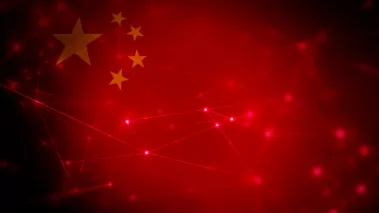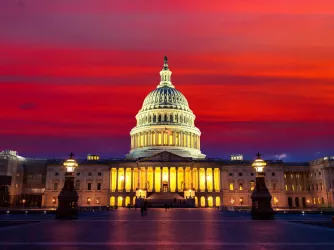Table of Contents
For Olympic free speech zones, China takes page from American universities

Shutterstock.com
As the start of the Beijing Games draws near ― and with questions remaining about how Communist Party officials will address public dissent and protest ― I was struck by this paragraph from an article in The New York Times this morning:
The Chinese government will permit public protests inside three designated city parks during next month's Olympic Games, but demonstrators must first obtain permits from the local police and also abide by Chinese laws that usually make it nearly impossible to legally picket over politically charged issues.
Designating special protest zones? Requiring permits for expressive activity? Reviewing the content of that expressive activity in advance?
Sounds suspiciously like China has been studying up on the methods employed by some universities over here in the States, because the similarities are too obvious to ignore.
For one particularly shameful example, just check out the free speech zone currently enforced by Valdosta State University in Georgia, our March 2008 Speech Code of the Month and the subject of a recent FIRE video. Just like China, VSU has a tiny area set aside for expressive activity on campus―including protest, perhaps most the most vital expressive activity of all. And just like China, VSU requires students to reserve this tiny space in advance, completely squashing any chance of a spontaneous reaction to unfolding events. And again, just like China, VSU mandates that all uses of the "Free Expression Area" must "have an educational or cultural purpose." Sounds pretty broad, sure, but such a provision means that the content of every activity is subject to prior review by VSU administrators, who also have plenty of interpretive leeway to shut down speech with which they disagree.
Indeed, China's Olympic free speech zones might even be better than the one maintained by VSU (which, by the way, is one of just five schools on FIRE's Red Alert list). How come? Because even with all the restrictive conditions imposed on its use, China's free speech zone doesn't require speakers to limit their expressive activity to just two hours per day, as best I can tell. Students at VSU aren't so privileged: they are allowed to speak only between noon-1 PM and 5-6 PM.
VSU and each of the many public universities across the nation that maintain unconstitutional free speech zones should be ashamed. It's a disgrace that the free expression policies of some of America's colleges bear even the slightest resemblance to Beijing's.
Recent Articles
FIRE’s award-winning Newsdesk covers the free speech news you need to stay informed.

One day after FIRE lawsuit, Congress passes changes to filming permits in national parks

VICTORY: FIRE lawsuit leads California to halt law penalizing reporters, advocates, and victims who discuss publicly known information about sealed arrest records

O holy fight: New Hampshire Satanic Temple statue threatened by more than vandals
